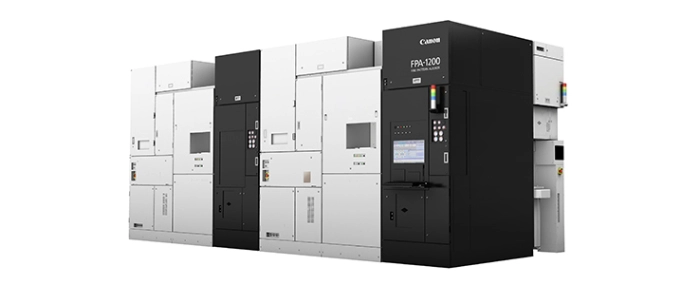
Canon delivers NIL system to Texas Institute for Electronics
Canon says that it has shipped its most advanced lithography platform, the FPA-1200NZ2C nanoimprint lithography (NIL) system for semiconductor manufacturing, to the Texas Institute for Electronics (TIE), a Texas-based semiconductor consortium.
In contrast to conventional photolithography equipment, which transfers a circuit pattern by projecting it onto the resist coated wafer, the FPA-1200NZ2C does it by pressing a mask imprinted with the circuit pattern into the resist on the wafer like a stamp. Because its circuit pattern transfer process does not go through an optical mechanism, fine circuit patterns on the mask can be faithfully reproduced on the wafer. With reduced power consumption and cost, the new system enables patterning with a minimum linewidth of 14 nm1, equivalent to the 5 nm node2 that is required to produce most advanced logic semiconductors currently available.
This FPA-1200NZ2C will be used at TIE for the research and development of advanced semiconductors and production of prototypes.
TIE is a semiconductor consortium founded back in 2021 and supported by The University of Texas at Austin. It consists of state and local governments, semiconductor companies, national research institutions and other entities. TIE provides open access to semiconductor research and development initiatives and prototyping facilities in order to help solve issues related to advanced semiconductor technology, including advanced packaging technology.
Canon will continue to promote research and development using nanoimprint lithography systems for semiconductor manufacturing to contribute to the evolution of semiconductor manufacturing technology.


